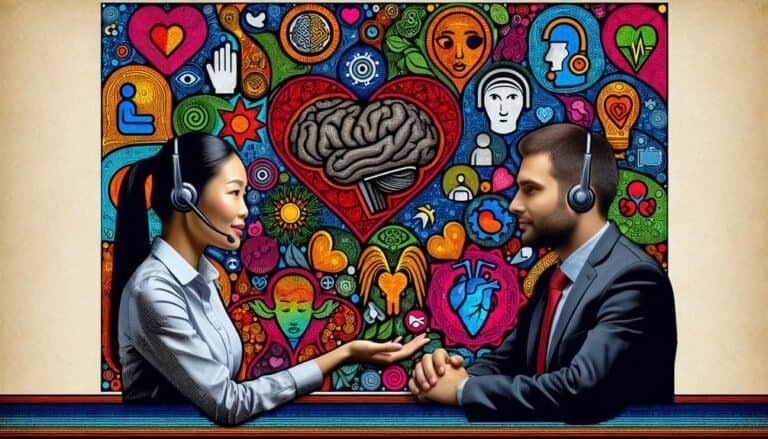How Emotional Intelligence Enhances Musical Collaboration
Music is commonly referred to as the worldwide language of humans. It can surpass barriers and unite individuals. But what occurs in the background when musicians work together to produce that enchanting harmony? Emotional intelligence (EI) stands out as a pivotal element that can either strengthen or hinder a musical alliance. This article will delve into how EI boosts musical teamwork and the competencies crucial for prosperous partnerships.
Role of Empathy in Musical Collaboration
Empathy involves stepping into another person’s shoes to understand their emotions and viewpoints. This ability enables musicians to establish deeper connections during musical collaborations. When band members empathize, they gain insight into each other’s creative visions and emotions. This mutual understanding cultivates a supportive and positive atmosphere where everyone feels valued and listened to.
For instance, envision a band brainstorming for a new song. While a guitarist may have a specific melody in mind, the drummer could suggest a different rhythm. Rather than rejecting ideas, empathetic band mates strive to grasp the emotions behind them. This empathetic approach fosters a more unified collaboration, resulting in a song that showcases the group’s collective creativity.
Effective Communication in Music
Effective communication is a vital component of emotional intelligence in musical collaboration. Ensuring clear and respectful communication is crucial for sharing and understanding ideas. It minimizes misunderstandings and conflicts. Musicians should articulate their thoughts and emotions effectively, both verbally and non-verbally.
Communication is paramount in a recording studio setting. Band members must communicate their artistic concepts, provide constructive input, and address technical aspects. Non-verbal signals like facial expressions and body language are also important. A raised eyebrow or a nod can express agreement or gratitude, enriching the collaborative experience.
Emotional Regulation in Creative Settings
Engaging in music creation is like riding an emotional rollercoaster. It involves moments filled with inspiration and happiness, alongside periods of frustration and creative obstacles.
Managing emotions effectively, known as emotional regulation, plays a vital role in such situations. Musicians with elevated emotional intelligence can handle pressure, adapt to changes, and maintain a positive outlook.
Imagine a situation where a band is under pressure to complete an album within a tight deadline. Stress is high, leading to potential tensions. A musician with proficient emotional regulation can stay calm, motivate bandmates, and resolve issues. This capability to remain composed and focused ensures that the collaborative process stays productive and enjoyable.
Enhancing Creativity Through Emotional Intelligence
Creativity flourishes in a setting that appreciates emotional intelligence. When musicians sense emotional backing and comprehension, they are inclined to venture into unconventional territories and explore innovative ideas. Emotional intelligence fosters receptiveness and a readiness to delve into fresh concepts, resulting in pioneering musical creations.
Consider a band delving into a different genre or integrating unique instruments into their music. This inventive spirit is frequently inspired by their fellow band members’ emotional reinforcement and motivation.
By nurturing an environment rich in emotional intelligence, musicians can stretch their creative limits and generate revolutionary music. Digital music distribution platforms have allowed musicians to share their music with the world. Combining emotional intelligence and musical collaboration enables artists to create powerful, impactful work that resonates with diverse audiences.
Overcoming Challenges in Collaboration
Musical partnerships come with hurdles. Variances in artistic vision, clashes in personalities, and scheduling conflicts can all create barriers. Emotional intelligence provides musicians with the skills to tackle these obstacles and transform them into chances for development. For instance, a band could encounter a dispute regarding the song’s direction.
Rather than allowing this dispute to develop into a confrontation, emotionally intelligent musicians will address the issue with empathy and good communication. They will consider each other’s viewpoints, discover commonalities, and collaborate to produce a song that mirrors their shared vision.
Endnote
Engaging with music boosts our emotional understanding and expression, while also enriching our empathy, leading to improved emotional intelligence in various life interactions.







